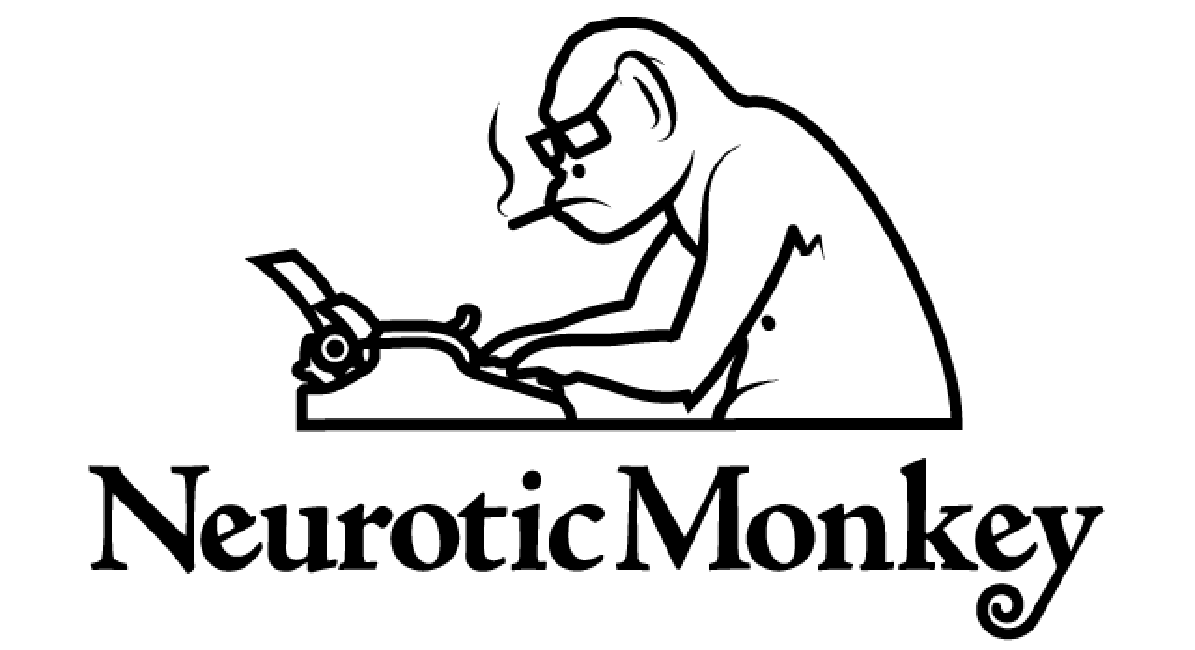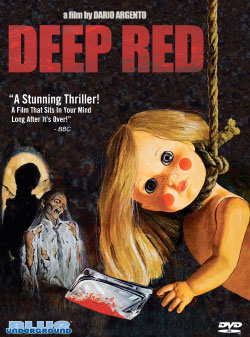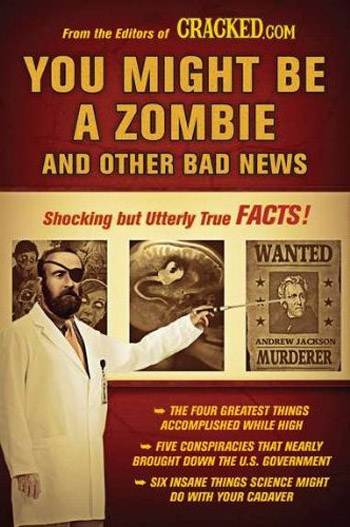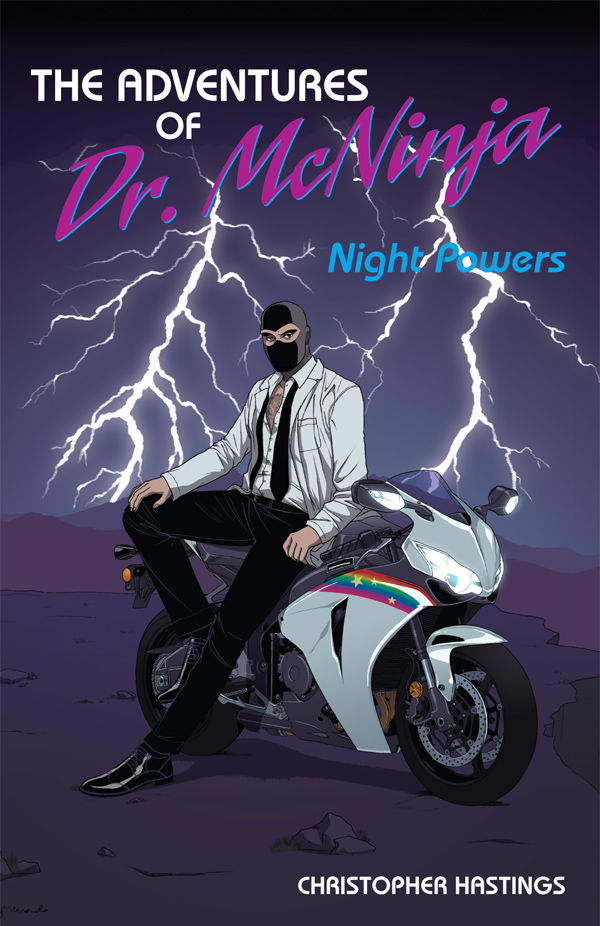Entries in Monkey Read, Monkey Review (5)
Monkey Read, Monkey Review: Hate You Forever by King Oblivion, Ph.D.
 Rob Dean On
Rob Dean On  Tuesday, April 13, 2010 at 1:30PM
Tuesday, April 13, 2010 at 1:30PM The internet has become the frontlines for innovations in geek culture and comedy. So when these two things collide on the premier website for supervillainy, only good can come from it right? And so it is that The ISS (that's International Society of Supervillains) has birthed its first book - an instructional text on how to become a supervillain appropriately titled Hate You Forever.
 The fact of the matter is that, at 172 pages (incl. many illustrations) and only $13, the book - full title being Hate You Forever: How to Channel Your Rage Into Effective Supervillainy - is definitely a quick read. But that's not a negative thing at all. In fact, it points to the powers of pithiness that King Oblivion, Ph.D. (a/k/a MD Wilson) employs in his writing. He gets in, establishes various jokes (include some great running gags) and then gets out before the whole thing becomes stale and annoying. True, some of the humor may be aimed more towards a certain demographic (let's call them the "indoor kids"), but by and large this is a very entertaining read for people who love absurdity and flights of (fearful) fancy.
The fact of the matter is that, at 172 pages (incl. many illustrations) and only $13, the book - full title being Hate You Forever: How to Channel Your Rage Into Effective Supervillainy - is definitely a quick read. But that's not a negative thing at all. In fact, it points to the powers of pithiness that King Oblivion, Ph.D. (a/k/a MD Wilson) employs in his writing. He gets in, establishes various jokes (include some great running gags) and then gets out before the whole thing becomes stale and annoying. True, some of the humor may be aimed more towards a certain demographic (let's call them the "indoor kids"), but by and large this is a very entertaining read for people who love absurdity and flights of (fearful) fancy.
Oblivion outlines all the various aspects of supervillainy - persona, goals, base of operations, costumes, personnel, and varios other tropes that have cropped up previously. With a Tony Robbins approach to the outlandish antics of costumed rogues, Oblivion is able to present the absurdity of global domination as another mundane avenue for realizing one's potential. Combined with the black humor of someone who delights in the pain and anguish of others (especially henchmen), it makes for a hilarious bout of cognitive dissonance.
True, some of this material has been covered elsewhere. If you're a fan of The Venture Brothers, Frisky Dingo, Dr. Horrible's Sing-A-Long Blog or Joe Meno's The Boy Detective Fails, then this may seem like well-worn subject matter. But it doesn't have the melancholy aspects that all of those projects seem to include. As opposed to realizing the depressing futility of being a constantly losing supervillain, Hate You Forever delights in the prospect of waging war against heroes - even at the cost of a few punches in the face.
Monkey Read, Monkey Review: The Boy Who Couldn't Sleep and Never Had To by DC Pierson
 Rob Dean On
Rob Dean On  Tuesday, March 30, 2010 at 1:40PM
Tuesday, March 30, 2010 at 1:40PM DC Pierson's debut book, The Boy Who Couldn't Sleep and Never Had To, explores both the promise and pitfalls of insomnia along with the power and problems of imagination. Pierson's novel looks at the world of two high school outcasts, united through the fake worlds they create, who quickly find themselves in situations that are rapidly getting out of control. And while there's a lot of humor in Pierson's book - particularly in his (through the narrator, Darren) observations on human behavior - the book itself isn't just a lark: it's about regret, stupid drama, hormones, first experiences and finding out about who you really are - even when that answer isn't exactly to your liking. In short, it's about growing up.
Insomnia is a helluva thing. Your mind rattles on, refusing to let you slip away into the land of fantasy and confusion promised by falling asleep. And while you may find yourself pursuing some random tangent or another - like finding out everything you can about the long forgotten cartoon show Kissyfur - you rarely get up to anything really productive. You may read more, or watch more television or movies, but you're not working diligently on a cure for disease or a practical version of the flying car.
Monkey Read, Monkey Review: Was Superman a Spy? by Brian Cronin
 Rob Dean On
Rob Dean On  Tuesday, March 23, 2010 at 1:30PM
Tuesday, March 23, 2010 at 1:30PM  There's a recent spate of books being culled from blogs where an author can reach a wider audience while preserving their voice. Of course, the intimacy and accessibility that comes from a free blog found by fans on the net is sacrificed for the sake of monetary compensation and greater exposure. But the fans will continue to follow the artist as long as that artist doesn't change his voice or whatever ineffable qualities he exhibited that attracted people to him in the first place. But is it worth paying money just to get something that's mostly free online? True, many authors add some previously unreleased material - but that usually doesn't count for the majority of the text.
There's a recent spate of books being culled from blogs where an author can reach a wider audience while preserving their voice. Of course, the intimacy and accessibility that comes from a free blog found by fans on the net is sacrificed for the sake of monetary compensation and greater exposure. But the fans will continue to follow the artist as long as that artist doesn't change his voice or whatever ineffable qualities he exhibited that attracted people to him in the first place. But is it worth paying money just to get something that's mostly free online? True, many authors add some previously unreleased material - but that usually doesn't count for the majority of the text.
Enter Brian Cronin's Was Superman a Spy? from Penguin Books. Based on Cronin's column "Comic Book Legends Revealed" that he writes for the Comics Should Be Good Blog at Comic Book Resources, the book is an examination of the comic book industry - with particular interest in superheroes, the business aspect of comic books and the cultural impact that they've had since World War II. Cronin uses some key characters from the "Big Two" comic companies (DC & Marvel) to act as a gateway into the evolution of the medium and the industry, and examines the various changes and interesting anecdotes that have befallen them over the years. In particular focus are Superman, Batman, Fantastic Four, Spider-Man, Captain America, X-Men, The Incredible Hulk and Walt Disney comics. There are extenuating chapters on bits of comic book arcana covering other characters, with interesting and curious stories of particular creators or characters.
I tend to think of myself as a person fairly well versed in comic book lore, who knows a lot of the storied history of these iconic characters - their fictional origins as well as the inspirations their creators drew on to give birth to these figures of the new mythology. Even with that snobbish background, this book is incredibly accessible and packs a lot of information into a sparse few chapters.
Monkey Read, Monkey Review: Couch by Benjamin Parzybok
 Rob Dean On
Rob Dean On  Tuesday, March 9, 2010 at 1:25PM
Tuesday, March 9, 2010 at 1:25PM  The world is rapidly shrinking. As more satellites are launched and civilization continues to spread about the globe, it's getting harder to find any true mysteries left unsolved. The age of exploration and adventure seems dead and forgotten. Or is it?
The world is rapidly shrinking. As more satellites are launched and civilization continues to spread about the globe, it's getting harder to find any true mysteries left unsolved. The age of exploration and adventure seems dead and forgotten. Or is it?
In Benjamin Parzybok's debut novel, Couch, three twenty-somethings embark on an epic quest that takes them from their apartment in Portland, OR to the furthest reaches of myth and human experience. Along the way they meet attractive journalists, steampunk enthusiasts, nefarious collectors, helpful councils, drunken guerillas and many others. For it seems like the couch has a destination in mind, somewhere that it wants to go, and it's up to the three roommates to ensure it arrives there.
What makes the book interesting isn't it's seemingly unique premise - though the idea of an act of furniture moving expanding into an epic quest of identity is certainly intriguing. What makes the readers follow along in the story are the three main characters - Thom, Tree and Eric - each with something off about them, and each with a carefully formed personality that intensifies and/or undergoes some changes in the course of the journey.
Monkey Read, Monkey Review: Pride & Prejudice & Zombies: Dawn of the Dreadfuls
 Rob Dean On
Rob Dean On  Wednesday, March 3, 2010 at 1:15PM
Wednesday, March 3, 2010 at 1:15PM Jane Austen inspires two very different reactions within me.
While I'm reading her books, I find them tedious and rather obnoxious. Spending so much time in the minutiae and social mores of the upper class of an uptight society - whilst the rest of the country experienced terrible problems with the rise of the industrial revolution - it's a bit reminiscent of the popular, pretty girl in high school bitching about how she can be alone...even in a crowd (which may be why I still hate Clueless - itself based on Austen's Emma).
And yet - as with most things in this life, a good teacher can make all the difference. For I found, under the genius tutelage of the beautiful & brilliant Professor Priscilla Gilman, that there were multiple levels to Austen's work. Metaphors, figurative language and whole characters created as a means of commenting on the very society and cultural norms I found so detestable.
Reading Austen was tedious and arduous to me - but thinking about her work was exciting and revelatory. Enter Pride and Prejudice and Zombies: Dawn of the Dreadfuls, which isn't a complete 180 on my previous experience with Austen, but was very close to it.
 PPZ:DOD (for brevity sake) is the prequel to Seth Grahame-Smith's Pride & Prejudice & Zombies, although this book is written by Steve Hockensmith, not Grahame-Smith. And while the previous entry in the series was a reworking and interweaving of Austen's text with Grahame-Smith's own injection of zombie action, this tale isn't fettered by Austen's plots, allowing Hockensmith to become much more creative.
PPZ:DOD (for brevity sake) is the prequel to Seth Grahame-Smith's Pride & Prejudice & Zombies, although this book is written by Steve Hockensmith, not Grahame-Smith. And while the previous entry in the series was a reworking and interweaving of Austen's text with Grahame-Smith's own injection of zombie action, this tale isn't fettered by Austen's plots, allowing Hockensmith to become much more creative.
Sometimes such freedom can be dangerous, if not outright dreadful (some pun intended). Without the structure provided by Austen's work, it would be easy to see how PPZ:DOD could go off the rails. However, Hockensmith has crafted a fun tale with plenty of (nerdy) genre shout-outs and perhaps even a certain level of profundity, though not at the expense of his entertaining book. If Grahame-Smith's Pride & Prejudice & Zombies is Romero's Dawn of the Dead, a novel entry that helps redefine a genre while constantly providing some sort of metaphor, then consider PPZ:DOD more like Shaun of the Dead - highly entertaining and amusing revisionist romp, with plenty of geeky allusions and meta-textual moments, and perhaps a slight dipping of its toe into social commentary. Heck, there's even discussion in PPZ:DOD about using "the zed word."
More review after the jump, along with a chance to win FABULOUS prizes!







